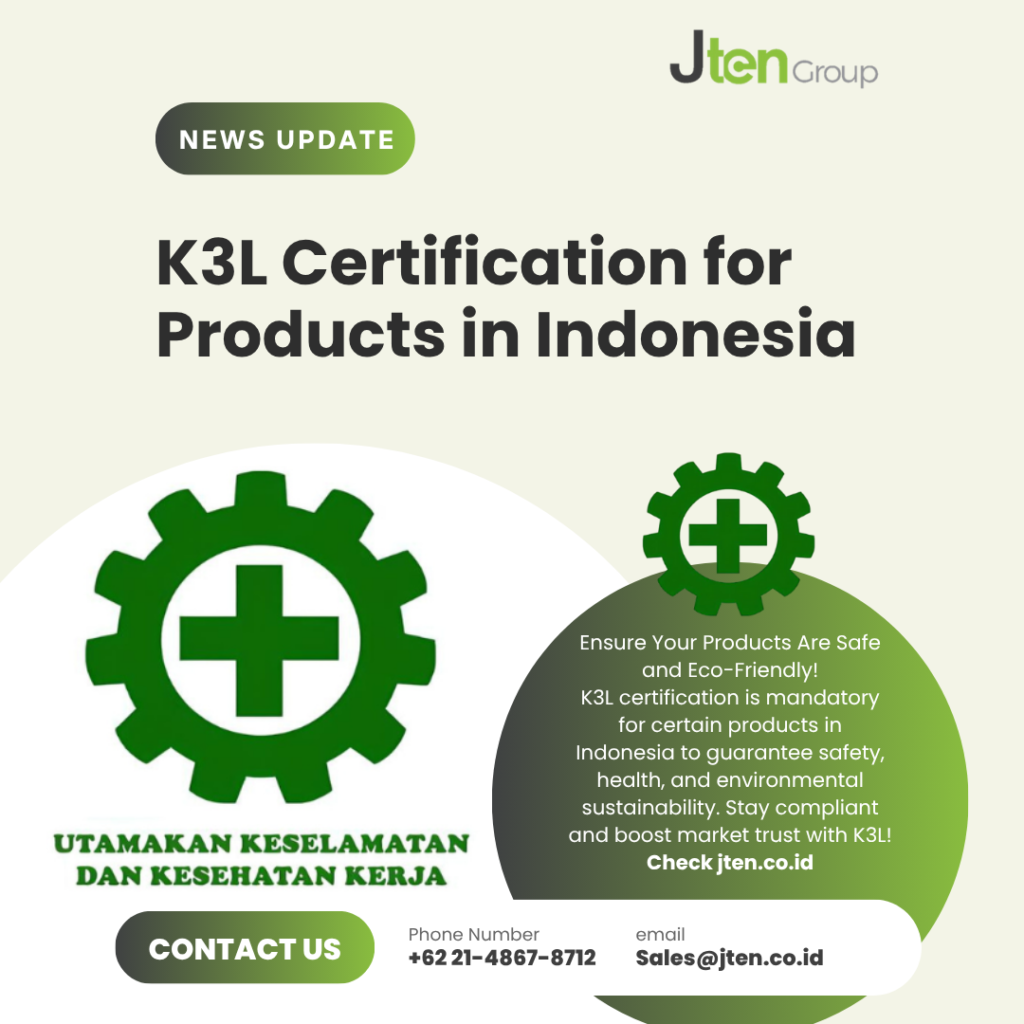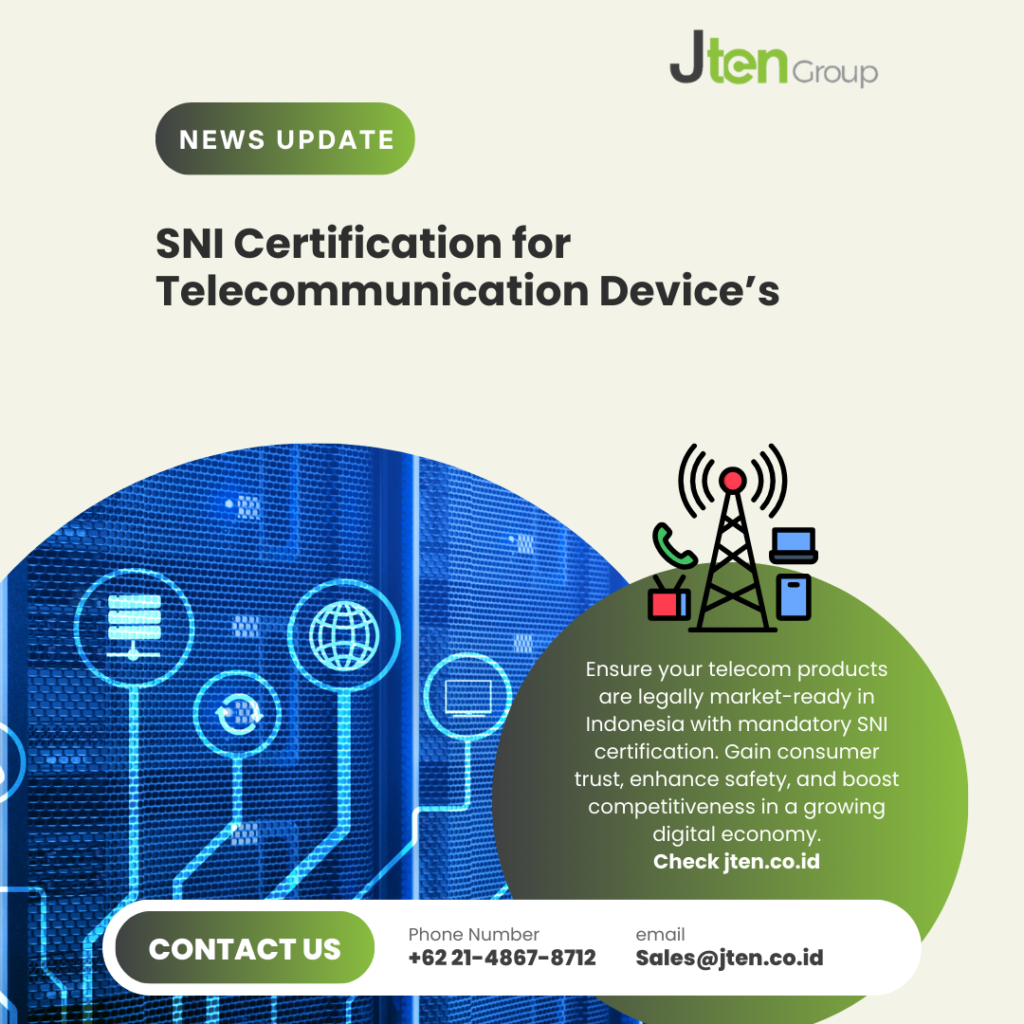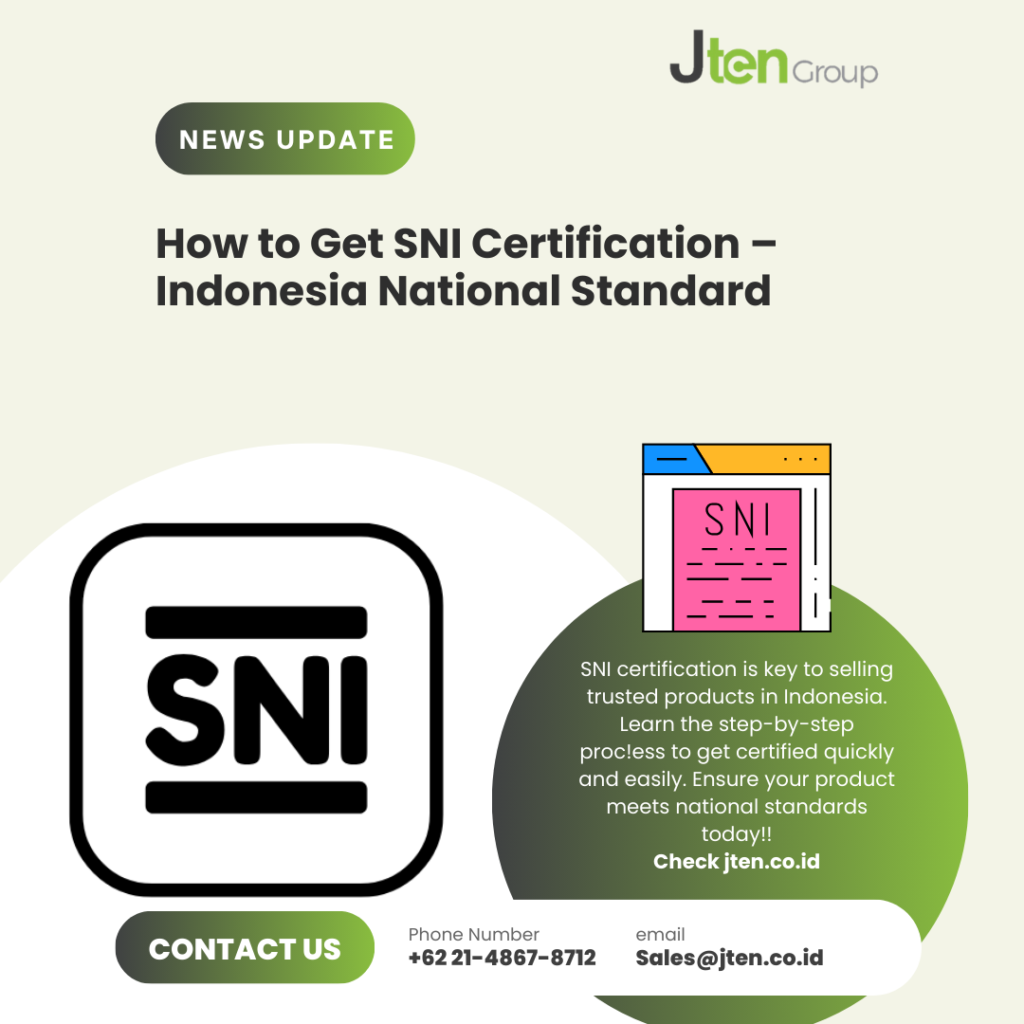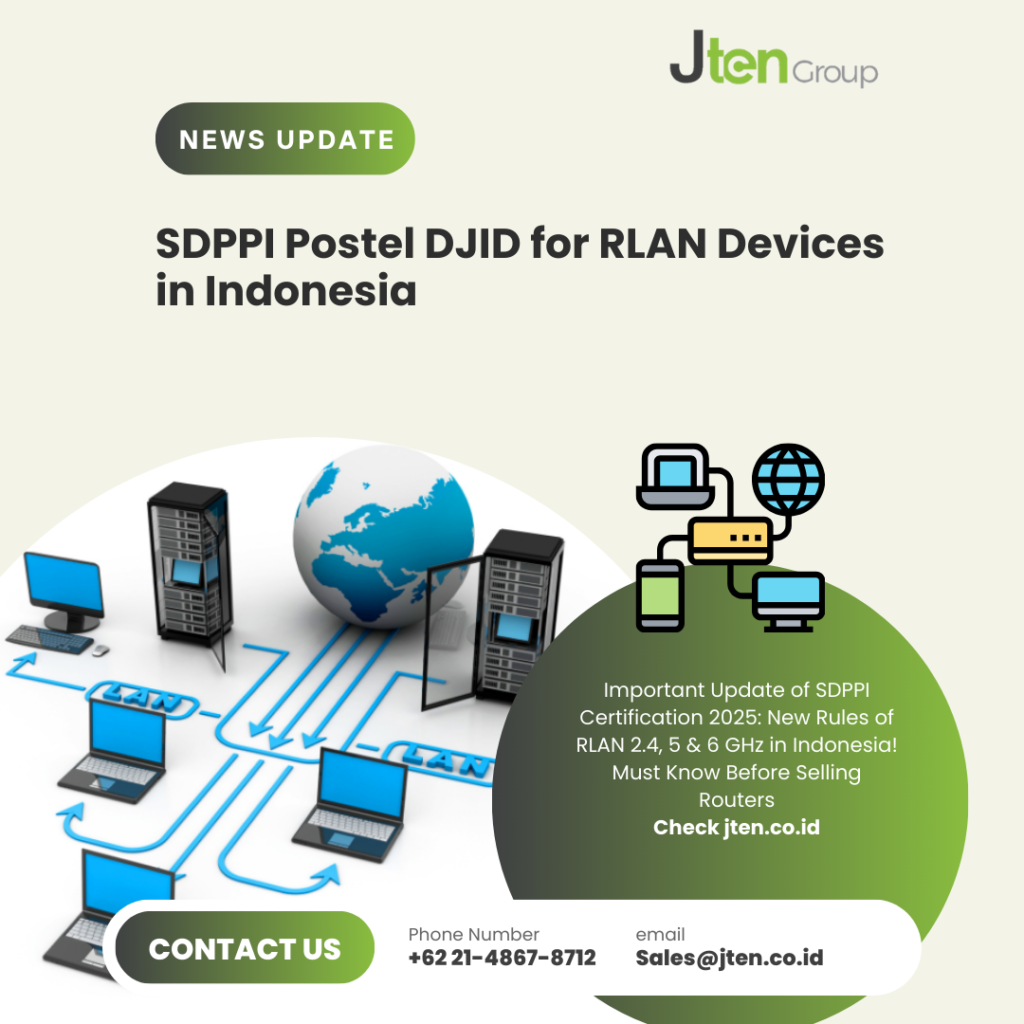In Indonesia, SNI (Standar Nasional Indonesia or Indonesian National Standard) certification plays a vital role in ensuring that consumer products meet nationally recognized safety, performance, and environmental standards. For household appliances such as air conditioners, refrigerators, and washing machines, SNI certification is not only a legal requirement for importation and distribution, but also a mark of quality assurance that benefits manufacturers, distributors, and consumers alike. The Indonesian National Standard (SNI) for electronic appliances including washing machines, refrigerators, and air conditioners has been made mandatory starting this year with the issuance of the REGULATION OF THE MINISTER OF INDUSTRY OF THE REPUBLIC OF INDONESIA NUMBER: 34/M-IND/PER/7/2013 regarding the MANDATORY IMPLEMENTATION OF THE INDONESIAN NATIONAL STANDARD (SNI) FOR AIR CONDITIONERS, REFRIGERATORS, AND WASHING MACHINES. This regulation was enacted in Jakarta on July 10, 2013, and as stated in Article 14, took effect nine months after its enactment, meaning it was effectively enforced starting April 10, 2014. The technical guidelines are established in regulation number 30/IUBTT/PER/12/2013. According to Article 2 paragraph (1) of the regulation, “The mandatory enforcement of SNI for Air Conditioners, SNI for Refrigerators, and SNI for Washing Machines applies to products with the following HS Code classifications”: No Product Type SNI Number HS Code 1 Air Conditioner (AC) includes split, window, or portable units with cooling capacity up to 3 PK (27,000 BTU/h or 7913 Watts) and rated voltage not exceeding 250 V. SNI IEC 60355-2-40-2009 Household and similar electrical appliances – Safety – Part 2-40: Particular requirements for electrical heat pumps, air-conditioners, and dehumidifiers ex: 8415.10.10.00 2 Refrigerator (electric freezer) with gross volume not exceeding 300 liters and voltage not exceeding 250 V SNI IEC 60355-2-24-2009 Household and similar electrical appliances – Safety – Part 2-24: Particular requirements for refrigerating appliances, ice-cream appliances, and ice makers 8418.10.10.10, ex 8418.10.10.90, 8418.21.00.10, ex 8418.21.00.90, 8418.29.00.10, ex 8418.29.00.90, 8418.30.10.00, ex 8418.30.90.00, 8418.40.10.00, ex 8418.40.90.00 3 Washing Machine, either single-tub or twin-tub, with dry linen capacity not exceeding 10 kg and voltage not exceeding 250 V SNI IEC 60335-2-7-2009 Household and similar electrical appliances – Safety – Part 2-7: Particular requirements for washing machines 8450.11.10.00, 8450.11.90.00, 8450.12.00.10, 8450.12.00.20, 8450.19.10.10, 8450.19.10.20 Article 2 paragraph (3) states: “The SNI for Air Conditioners, SNI for Refrigerators, and SNI for Washing Machines as referred to in paragraph (1) must comply with the general provisions of SNI IEC 60335-1:2009 for household and similar electrical appliances – Safety – Part 1: General requirements.” Furthermore, paragraph (3) stipulates: “The classification of refrigerants used in Air Conditioner products as referred to in paragraph (1) must comply with the technical document ANSI/ASHRAE 34-2007 and its amendments, which are further regulated by the Regulation of the Director General of Industrial Development.” Article (1) also states that the SNI mentioned in Article 2 does not apply to Air Conditioners, Refrigerators, and Washing Machines with the same HS Code as the products specified in Article 2 that are: Article (2) states that the importation of Air Conditioners, Refrigerators, and Washing Machines as referred to in paragraph (1) must have a Technical Consideration Letter from the Director General of Industrial Development. The Indonesian government mandates SNI certification for these appliances through the Ministry of Industry and the National Standardization Agency (BSN), supported by accredited laboratories and conformity assessment bodies. Compliance not only grants access to the Indonesian market but also enhances brand credibility and consumer trust. However, navigating the SNI certification process can be complex and time-consuming without proper support. This is where PT Jelajah Teknologi Nusantara (Jten) comes in. With extensive experience and a commitment to technical excellence, Jten offers comprehensive services to help manufacturers and importers obtain SNI certification efficiently and reliably. From product testing to documentation and liaison with government bodies, Jten ensures a smooth and transparent certification journey. Ensure your air conditioners, refrigerators, and washing machines comply with Indonesia’s national standards. Partner with Jten today and simplify your SNI certification process with confidence.










